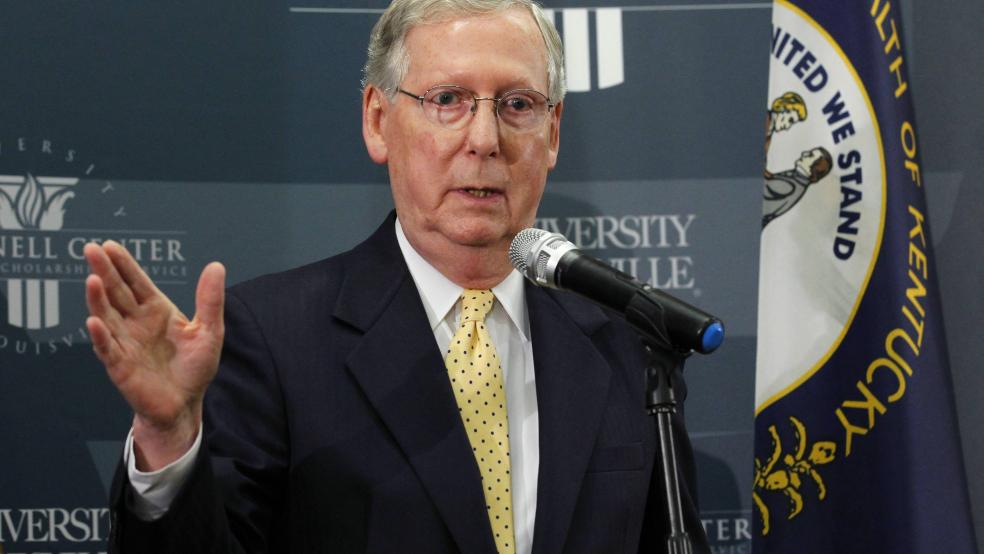For a while, at least, moderate Republicans in the Senate dug in their heels in strong opposition to a House-passed plan to roll back expanded Medicaid in 31 states and the District of Columbia as part of a repeal and replacement of the Affordable Care Act.
Indeed, four senators, including Rob Portman of Ohio, Shelley Moore Capito of West Virginia, Cory Gardner of Colorado and Lisa Murkowski of Alaska – warned Senate Majority Leader Mitch McConnell (R-KY) in a March letter that they couldn’t support any bill that gutted the expanded Medicaid coverage for millions of able-bodied, childless adults.
Related: How the GOP Health Care Disaster Is Opening the Door to Medicaid for All
Since then, however, much of the resistance to a Medicaid expansion rollback from the more moderate wing of the GOP has begun to dissipate after McConnell cracked the whip and demanded Senate action on Obamacare replacement legislation before the July 4th recess.
Republicans of all stripes are finding it increasingly difficult to buck President Trump and the Senate GOP leadership, who are determined to pass repeal and replacement legislation this summer to finally make good on long-standing campaign promises.
Moreover, McConnell included Portman and Gardner in a highly exclusive group of 13 Senate Republicans who are secretly drafting the overall legislation that the majority leader hopes to push through the Senate with almost no public vetting.
Portman and Capito now indicate they intend to back the plan to end the Medicaid expansion gradually, provided it is done far more gradually than what House Republicans are demanding. They also want Congress to provide the states with far more funding for the traditional Medicaid program, and more leeway for the states in deciding on how to spend the funds.
Related: House GOP’s Health Plan Isn’t Much Better the Third Time Around, CBO Says
The House-passed bill would freeze the Medicaid expansion in 2020 and then gradually phase it out as people leave the program. Across the country, more than 11 million low-income adults obtained Medicaid through the expansion under Obamacare. In Ohio alone, roughly 700,000 residents benefitted from the program’s expansion, which was almost entirely paid for by the federal government.
Portman and other moderate Republicans are now saying they would support a phase-out, but that it would have to have an extensive “off ramp” that would extend through 2027.
McConnell and the moderates still have a way to go in fully resolving their differences. In a Senate chamber where Republicans hold a narrow 52 to 48 advantage over the Democrats, the leader can’t afford to lose more than two Republicans on a final vote and still pass the overall legislation.
But McConnell may have just received an important gift from Ohio Gov. John Kasich, a highly influential Republican and 2016 presidential candidate, who until now has been a major champion of preserving expanded Medicaid in his home state and much of the rest of the country.
In an interview Monday with The New York Times, Kasich said he would accept a “gradual phase-out” of the Medicaid expansion, provided that Congress provides the states with more money to manage the health care program for the poor and disabled.
Related: The GOP Is Playing Chicken With Millions of Americans’ Health Insurance
Kasich, who once waged an emotional crusade on behalf of the expanded Medicaid program, said in the interview, “I don’t have a problem with phasing down the enhanced federal payments, [but] it can’t be done overnight, and it has to be done with the resources and flexibility that are needed so that people don’t get left behind.”
Kasich has been working with several other governors from states with expanded Medicaid coverage on an alternative approach to the House-approved plan. But his statement yesterday may have provided added encouragement to wavering moderates – including Gardner and Murkowski -- who are still wrestling with a decision.





